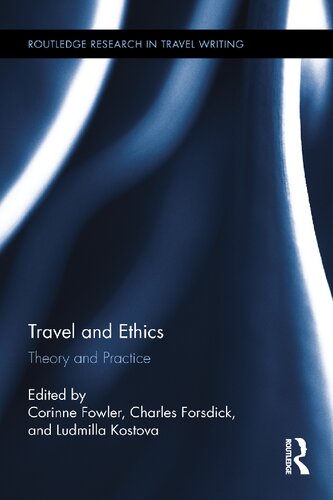

Most ebook files are in PDF format, so you can easily read them using various software such as Foxit Reader or directly on the Google Chrome browser.
Some ebook files are released by publishers in other formats such as .awz, .mobi, .epub, .fb2, etc. You may need to install specific software to read these formats on mobile/PC, such as Calibre.
Please read the tutorial at this link: https://ebookbell.com/faq
We offer FREE conversion to the popular formats you request; however, this may take some time. Therefore, right after payment, please email us, and we will try to provide the service as quickly as possible.
For some exceptional file formats or broken links (if any), please refrain from opening any disputes. Instead, email us first, and we will try to assist within a maximum of 6 hours.
EbookBell Team

0.0
0 reviewsDespite the recent increase in scholarly activity regarding travel writing and the accompanying proliferation of publications relating to the form, its ethical dimensions have yet to be theorized with sufficient rigour.
Drawing from the disciplines of anthropology, linguistics, literary studies and modern languages, the contributors in this volume apply themselves to a number of key theoretical questions pertaining to travel writing and ethics, ranging from travel-as-commoditization to encounters with minority languages under threat. Taken collectively, the essays assess key critical legacies from parallel disciplines to the debate so far, such as anthropological theory and postcolonial criticism. Also considered, and of equal significance, are the ethical implications of the form’s parallel genres of writing, such as ethnography and journalism. As some of the contributors argue, innovations in these genres have important implications for the act of theorizing travel writing itself and the mode and spirit in which it continues to be conducted. In the light of such innovations, how might ethical theory maintain its critical edge?